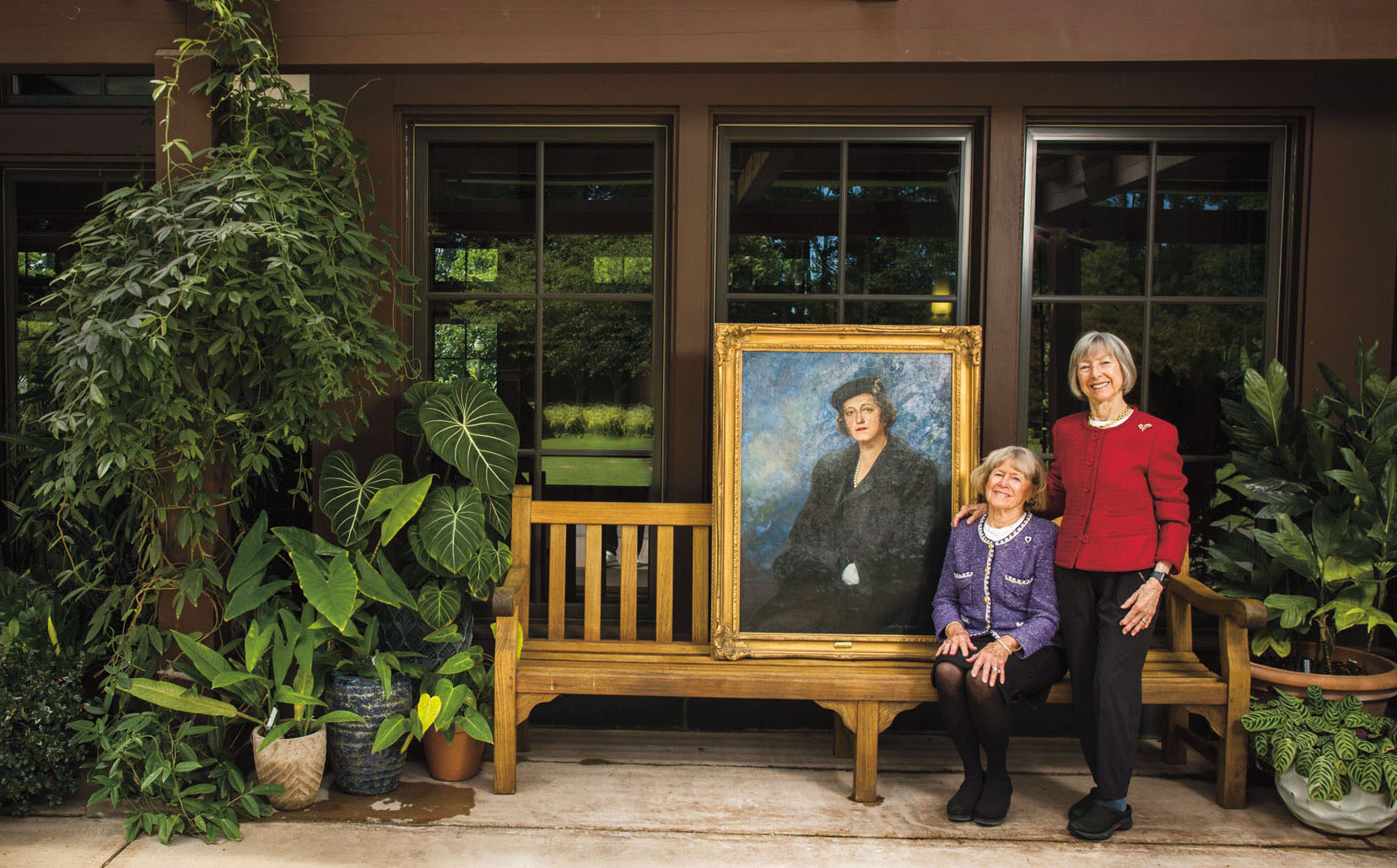Mary Duke Biddle had something to say.
The only daughter of Duke University benefactors Benjamin and Sarah P. Duke, she thought the Woman’s College was being overlooked. Duke needed a music department and a music building, Biddle thought.
And she said so to then-President William Few. In a 1937 letter, Few disagreed, preferring a new dorm or a library expansion first.
But Biddle, much like her mother, Sarah Duke, and her daughter, Mary Duke Biddle Trent Semans ’39, had a vision for what Duke needed.
“To be a good leader, you have to be able to look into the future,” says Mary Trent Jones ’63, Biddle’s eldest granddaughter and former trustee and vice chair of The Duke Endowment, the foundation that expanded Trinity College into Duke University in 1924.
That foresight – and the willingness to speak up – has become synonymous with the Duke family women.
Biddle didn’t get her music building right then, but she did get it – setting up her own foundation to contribute to the construction of the building that bears her name on Duke’s East campus and that gives 50 percent of its income to Duke today.
The Duke family women have supported the university in immeasurable ways, together leaving a mark on the campus we know today.
More visibly, Sarah P. Duke established the university’s public gardens and supported many of the university buildings and infrastructure, along with her husband, Ben.
Mary Duke Biddle continued the legacy with her support of the arts, establishing the Rare Book Room and giving generously to Duke Libraries.
Mary Duke Biddle Trent Semans, Biddle’s daughter, served for decades in various executive roles, including as trustee and as a chair of The Duke Endowment. In addition, Trent Semans spent her life advocating for the expansion of education and the arts and championing human rights.
Daughter Barbara Trent Kimbrell remembers formative mornings with her sisters, listening to Trent Semans read them the newspaper.
"She taught us to care about the community," Trent Kimbrell said.
In 1951, Trent Semans advocated for Black voter registration, affordable housing and health equity in Durham and went on to win election to the Durham City Council, where she was one of the first two women on the council. From 1953 to 1955, she served as Durham’s mayor pro tempore.
“She felt she was the person to carry on the legacy of Duke in Durham and in this state,” says daughter Sally Trent Harris ’63. “She felt it was her responsibility.”
That spirit lives on in Trent Semans’ living daughters – Mary Trent Jones ’63 and Rebecca Trent Kirkland ’64 of Pittsboro; Sally Trent Harris ’63 of Charlotte; Beth Semans Hubbard ’85 of Los Angeles; and Barbara Trent Kimbrell of Mt. Pleasant, South Carolina. Each woman is a philanthropist in her own right, carrying on their work through several family foundations and careers spanning everything from the arts to medicine.
“It wasn’t all about the men,” says Beth Semans Hubbard, Trent Semans’ youngest daughter and now a documentary film producer. “The women in this family – they weren’t arm pieces.”
